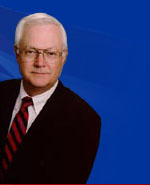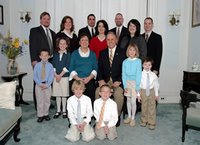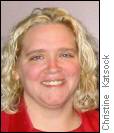The LuLac Edition #66, Sept., 29th, 2006



PICTURE INDEX: CONGRESSMAN DON SHERWOOD, ED PASHINSKI FAMILY PORTRAIT, AND CHRISTINE KATSOCK.
DEBATES: 2006
Going to the candidate's debate.
Laugh about it, shout about it
When you've got to choose
Every way you look at this you lose.
KATSOCK/PASHINSKI SQUARE OFF
Republican Christine Katsock and Democrat Ed Pashinski squared off for a debate sponsored by the League of Women Voters at Wilkes Barre’s King’s College McGowan Center. About 75 people attended the event and the debate was civil, informative, congenial and in effect a draw. Both candidates acquitted themselves well and if either one wins election to the seat vacated by Kevin Blaum, the district would be a big winner.
Here are some observations: Katsock is the best kept political secret in Luzerne County. She has a command of the issues, is a compelling speaker and in any other area of the state, she’d already be in public office.
Pashinski’s performance was steady, less fact filled but relied on his vast experience in music education, business and as a popular teacher. Pashinski was easy going but passionate while making his points.
Katsock quoted Ben Franklin saying, you can have government involvement and economic growth, but you can’t have both.
Pashinski noted the 6 step plan for success passed on to him by his family, saying that one can be successful by having Attitude, Pride, Organization, Desire, Self Discipline and Fortitude.
As stated before, both candidates were a credit to our democracy.
On various issues, let me break it down:
CRIME:
Katsock was adamant about finding a solution for the influx of people coming into town and causing problems. She said local governments could not solve the problem and suggested a comprehensive state law that would have teeth in it to help local officials with out of town criminals. She alluded to the Mary Leo murder as well as social service organizations that cater to people without in town credentials.
Pashinski talked about early childhood intervention, more police protection, and more neighborhood involvement. He stated that crime prevention cost money and that more police should be on board but health care costs prohibit smaller municipalities from hiring more police. That led into a discussion on health care reform.
HEALTH CARE AND MEDICAL MALPRACTICE:
Katsock said that a close look had to be taken at health insurance companies with surpluses and felt that money should be given back to the consumer.
Pashinski felt that a study of health care should be conducted and what is good should stay, what’s bad should be eliminated. Both agreed that with medical malpractice, the citizen had a right to a jury trial but Katsock said there should be caps on the pain and suffering clause of the tort law. In terms of health care reform, Pashinski called for a freeze on health care spending until something could be studied further.
PROPERTY TAX REFORM
Pashinski said if you eliminated a sales tax or any other one, it would have to be replaced with another tax to add the loss of revenue to the budget. Katsock said the property tax should be eliminated totally and referenced sheriff sales in the papers making the point that homeowners have no trouble paying state, county or federal taxes but are getting killed by property taxes. Pashinski, while saying taxes provided services said he was not in favor of a tax increase. Katsock agreed.
REVITALIZATION OF DOWNTOWN WILKES BARRE:
Pashinski said he’d be in favor of a KOZ zones which would give new businesses free rent for the first year to fill up the downtown storefronts. He said that less wrangling and power plays between the Chamber and government might make things better. Katsock touched on the crime issue saying that people needed to be safe not only in the downtown but in all neighborhoods.
YOUTH INVOLVEMENT IN POLITICS..
Katsock related her two days at Wilkes recruiting new voters and felt that more public education in high school as well as the colleges should be undertaken so more young people are involved in the process. Pashinski noted the paucity of young people in the audience and said young people needed to get more engaged in the process because his age demo’s time is nearly over and that he is seeking the office for the welfare of his children and grandchildren.
THE PAYRAISE
Both said they would not take a pay raise but in different ways. Pashinski said they (the Legislature) did it all wrong but that wrong made a right. Pashinski noted that the pay raise issue woke people up, inspired them to get involved in the democracy and made the point that more eyeballs need to be watching both Harrisburg and Washington. Katsock used the opportunity to tell a story about going into the bosses office and asking for a blank check from the bosses’s business to pay a mortgage, a car payment as well other things. She compared that to the unvouchered expenses legislators voted for themselves as well as the pay hike. Katsock quoted from the Jefferson reform iniative which as one of its key planks prohibits any legislation from being passed between midnight and 8am and a freeze on all legislation after an election so the outgoing office holders won’t be able to affect the outcome of the future sessions.
WHY THEY SHOULD BE ELECTED
Katsock reiterated her abolishment of the property tax, legislative and government reform, a program of directed spending as well as more contact with voters in her district.
Pashinski noted that you can tell where a person is going from where he has been. He outlined his forty years of service, said he had a history of bringing people together and would be a bi partisan legislator to help his district. He said we’re not just Democrats and Republicans but Pennsylvanians and Americans.
DEBATE NOTES………..Pashinski wore a single breasted navy suit with red tie, Katsock wore a salmon colored business suit…………..Both candidates agreed regionalization was important, Katsock lauded what Wilkes Barre Twp did with their revenues, Pashinski said that Wilkes Barre Twp was utilizing its resources and that with the addition of Mohegan Sun, Plains Twp should do well too. He pointed to Ashley as a problem area for revenue since they don’t have a lot of room for development….Pashinski made a joke asking if men could join the League. He was told yes. The League does need new blood, the website has not been updated in months and still shows the calender from the Spring primary……….Debate time: roughly under 1 hour…..Weather conditions, a slight drizzle at the start, a downpour at the end of it…..and last but not least,
the facilities at King’s College were first rate.
SHERWOOD ARTICLE IN NEW REPUBLIC
Good friend Jim Gibson forwarded the article from THE NEW REPUBLIC on the Sherwood/Carney race. I'm reprinting the whole thing because it's a great piece of writing and gives you an insight into how the 10th District is viewed by outside media.
Meshoppen Postcard
Choker
by Eve Fairbanks Post date: 09.22.06Issue date: 10.02.06
It's Labor Day at the Wyoming County Fair in Meshoppen, Pennsylvania, and the campaign season is underway. At the Wyoming County Democrats booth, Chris Carney, an earnest young Naval Reserve commander-turned-professor who is running for Congress, entertains a steady stream of voters. Carney, the challenger, is stumping hard--there's speculation that if he can win in the strongly conservative Tenth District, Democrats can take back the House--and, soon, his booth runs out of yard signs. One might expect a similar scene at the GOP booth a few yards away. But no one, save for a few county party officials, is there--not even the district's incumbent Republican representative, Don Sherwood.
Instead, Sherwood, a grandfatherly man in a checkered shirt and work boots, can be found at the bottom of a short hill, away from the fair's lively bustle, standing by a horsey-smelling mud patch. As he has almost every year for 15 years, Sherwood is helping lead a traditional farm competition called a horsepull, in which teams of Belgian Draft horses try to haul toboggans stacked with 1,000-pound concrete blocks 27-and-a-half feet along a strip of dirt. Usually, Sherwood helps load the concrete blocks onto the sled, but, a few weeks earlier, the 65-year-old had a heart procedure; so this year, he just hangs out, unannounced, chatting on his walkie-talkie. Although the race's first independent poll, released two weeks ago, has Sherwood seven points behind Carney, he is more passionate about discussing the drama of the horsepull than the upcoming election. "Oooh!" Sherwood whistles, in the middle of a question about his campaign: A pair of Belgians has stepped over the out-of-bounds line. "It's a psychological game," Sherwood tells me in a low voice. "If a teamster decides [his horses] can't pull it, he'll quit, because he doesn't want to teach them they can't pull it."
This calculus does not, it seems, apply to Sherwood himself. Despite the fact that he is facing the toughest challenge of his political career, Sherwood is surprisingly sanguine about his ability to pull his sled back to Washington. "I'm pretty well-known in the district--it's a lot of country people," he says. "I think we'll have it under control." Kicking back at the horsepull rather than joining the lawn-sign brigade might be a reflection of this confidence. But it might also be a way to hide out and avoid pressing the flesh--a potentially freighted activity for this embattled congressman. For, in addition to the considerable liabilities that come with being a Republican incumbent this fall, Sherwood has a highly original one of his own: In 2004, his 29-year-old mistress accused him of trying to strangle her during a massage. That's right. Dennis Hastert and his party could lose the House thanks to a backrub gone awry.
The tale of Don Sherwood's rise is a post-1994 Republican fairy tale, in which a sensible Everyman ascends from the dusty walks of rural America to the halls of the Capitol. Returning home from the Army in 1966 with the entrepreneurial itch, Sherwood founded a car dealership in his Wyoming County hometown and was soon elected to the local school board. Over decades selling cars and building schools, he became known for his genial, can-do personality. In 1998, he made a longshot bid for Congress against a member of the Casey family, Pennsylvania political royalty. Nobody thought Sherwood could win, but, after mobilizing nearly 2,000 volunteers and campaigning on family values and lower taxes, he was elected by 515 votes--the closest victory in the country that night.
After another close race in 2000, the Republican state legislature redrew the Tenth District for Sherwood with the same tender care a man takes in building a dream house for his beloved. Blue Scranton was expertly excised from the east side, and rural, traditional segments of five counties were tacked onto the bottom. Sherwood also won a seat on the House Appropriations Committee--setting him up to bring home treats like a $12 million grant to reclaim abandoned mine land. His new, gerrymandered district was so conservative--and so in love with his capacity to deliver pork--that even Democrats didn't seem to mind that he was a Bush loyalist. In the 2002 elections, Sherwood got enough write-in votes in the Democratic primary that he appeared on the final ballot as both the Republican and the Democratic candidate. As an unrepentant admirer who called himself Moon put it at the fair, the Tenth had become "Donnie Country."
Sherwood flourished in Washington as well, moving into Hill House, a reality show-ready Capitol Hill dormitory in which nearly half the rooms are occupied by legislators. Though he had a wife and kids back home, Sherwood enjoyed the Washington scene. "In most cities, the nightlife's on the weekends, but, in Washington, it's Tuesday, Wednesday, Thursday!" he tells me. In 1999, at a Young Republicans event, he met Cynthia Ore, a Peruvian-American grocery-store heiress and aspiring Hill intern in her early twenties. She was attracted to his salt-of-the-earth charm. "Guys in D.C. try to be so suave," she later recalled in a newspaper interview. "They drive Bentleys and Ferraris. Don has a truck."
But, by September 15, 2004, Sherwood's country charm had worn thin. That was the day Ore called the police from the bathroom of his apartment in Hill House, claiming he had tried to throttle her. When the police arrived, Sherwood protested that he'd merely been giving Ore a vigorous backrub. The police, for their part, determined that Ore did not seem to be "of sound mind." A year later, after their report was made public, Ore sued Sherwood for $5.5 million, but the matter was dispatched with a settlement.
Whether Sherwood was really choking or massaging may never be known. But the episode, while no Chappaquiddick, was pretty sordid for the Tenth. "Nobody has any morals anymore," one constituent lamented in the local paper. And yet, Sherwood vowed to run again.
Signs of trouble for his bid appeared long before this Labor Day. In May, despite having raised more than $1 million, Sherwood was nearly derailed by a primary challenger who spent less than $5,000 on her campaign and won 44 percent of the vote. Sherwood's underwhelming showing "shocked the political establishment in the state," says Terry Madonna, a professor of public affairs at Pennsylvania's Franklin & Marshall College, and led the Cook Political Report, the Rothenberg Political Report, and Congressional Quarterly to upgrade the race's competitiveness.
But Sherwood and his campaign staff seem only vaguely concerned about their precarious situation. As of press time, he has no campaign website. When I saw him at the fair, he had not sent out any mailings, nor done any TV ads (he recently went on the air, nearly a month after Carney). A call to the state committee revealed that no upcoming campaign events were on record there. "I don't know why," offered the perplexed committee staffer. "I guess we haven't been told about any."
Though some might chalk it up to incompetence, Sherwood and his staff imply that their lay-low strategy is intentional--that they understand things about how the race will play out that others don't. "The conventional wisdom is that the Democrats will take over the House, and Republicans aren't running good campaigns," a Sherwood staffer explains. "If you look at that, it's not true. People here are everyday people. They relate to somebody like Sherwood." As for the affair's impact on the race, when I ask Sherwood about the settlement, he replies, with a strange smile, "Do you think there was a settlement?"
What about the terrible primary, the disappointing poll? Worrying about how numbers stack up, the staffer explains, is a bad habit some Democrats have--specifically those who attended liberal arts colleges. "Being a student of Aristotle," he says, "you look at logic. Well, in 2000, there were more registered Democrats in the district, and Don still won."
In the end, aside from the sense of entitlement generated by the "Donnie Country" phenomenon, aside from the belief that the apparent national wish for change is a fad, and aside from denial of facts (on the poll: "We think the results are crap," Sherwood spokesman Jake O'Donnell told a local paper), there is an element of pure mysticism driving the Sherwood campaign. Rejecting the cold science of the Democrats, they keep faith with the justice of the heavens.
But the most amazing thing about the alleged strangling is that it might not matter--or, at least, might not matter very much. Fortunately for Sherwood, sleaze isn't playing nearly as big in this election as was expected. In recent polls, voters rank "ethics in Washington" or "corruption in Washington" at the very bottom of the list of factors influencing their November decision. Some at the fair even seem to expect a mishap like a strangling to befall anyone who sets foot in Washington. "Oh, that?" says Marlene Fuhr, a lively blonde dressed in pink from head to toe, when I ask her about the alleged strangling. "He misbehaved in Washington, but they all do!"
Unfortunately for Sherwood, the issues are playing well. When asked about the allegations, one registered Republican who worked with Sherwood on the school board responds, "Yes, I was surprised, and disappointed. ... [But] my greater disappointment with Don is the nearly visible puppet strings to the Bush administration." And, at the fair, outside a pink-and-white striped funnel cake stand, Bradford Barnes, a born-again Christian conservative from nearby Mehoopany, says, "I told Donnie, 'I was kind of mad at you.'"
"Because of the affair?"
"I'm mad that we've still got illegal immigration," he replies. In any other race, Sherwood's scandal would likely be the central joke. In this unusual year, it's better to be an alleged strangler than a Bush puppet.
Staying down at the horsepull may be the best way for Sherwood to believe he's still in Donnie Country. During the ten minutes I spend at the GOP booth, only one person comes over to request Sherwood paraphernalia: an eager, mischievous-looking little boy who wants campaign balloons. As a staffer bends to inflate them, I look at the kid more closely. It is Chris Carney's son.
Eve Fairbanks is an assistant editor at The New Republic.

1 Comments:
I missed the debate. Thanks for the rundown. I agree with your assesment of the candidates.
The TNR story was right on.
Post a Comment
<< Home